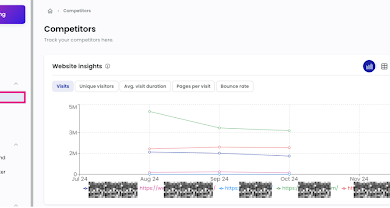The Advantages of Portable Lithium Battery Packs

In recent years, the shift towards renewable energy storage and efficient power solutions has accelerated, particularly with the rise of lithium technology. These advanced power sources have a profound impact on various sectors, providing dependable, durable, and efficient energy. Among the myriad of options, the portable lithium battery pack stands out for its versatility and multiple benefits that it brings to portable power needs. This article will delve into the specific advantages that these battery packs offer and how they are revolutionising the way we utilise stored energy.
Unmatched Portability
One of the most significant benefits of a portable lithium battery pack is, as the name suggests, its portability. These battery packs are designed to be lightweight and compact, making them an ideal choice for outdoor enthusiasts, professionals on-the-move, and anyone who requires off-grid power. Compared to traditional lead-acid batteries, lithium battery packs are typically much lighter, which means they can be easily transported without the need for heavy lifting equipment or excessive manpower.
Longer Lifespan
Lithium battery packs boast a longer lifespan than their lead-acid counterparts. A typical 12v lithium battery, for instance, can last for upwards of 2000 charge cycles, much more than the average lead-acid battery. This extended lifespan not only makes lithium batteries more cost-effective over time but also reduces the environmental impact as they require replacement less frequently.
High Energy Density
Energy density refers to the amount of energy stored in a given system or space. Lithium batteries excel in this area, storing more energy per pound than most other types, which means more power can be packed into a smaller, lighter package. This high energy density is particularly beneficial for applications that are size and weight sensitive, such as in mobile devices, drones, and electric vehicles.
Fast Charging Speeds
The ability to recharge quickly is another advantage that lithium battery packs offer. They can accept a faster rate of current, meaning they can be brought up to full charge in a fraction of the time it would take to charge other types of batteries. This rapid charging capacity is essential for users who need their devices powered up and ready to go in short periods, minimising downtime.
Low Maintenance Needs
Lithium battery packs typically require little to no maintenance to ensure their performance. They do not need to be watered and have no memory effect, so partial charges won’t reduce their capacity. This low-maintenance feature is a significant advantage over traditional batteries, which may require regular checks and maintenance routines.
Improved Safety Features
Advancements in lithium battery technology have led to improved safety features, which are integral to their design. Most modern lithium battery packs come with built-in management systems that protect against overcharging, deep discharge, overheating and short-circuiting. These safety mechanisms are vital in preventing accidents and ensuring the longevity of your battery pack.
Environmental Impact
Portable lithium battery packs are more eco-friendly compared to other battery types. They have a lower rate of pollution since they do not contain hazardous materials like lead or acid, which can leach into the environment. Moreover, their longer lifespan means fewer batteries are required over the same time frame, reducing waste.
High Discharge Rates
Lithium batteries can handle high discharge rates without impacting their overall performance. This is crucial for devices that require a considerable amount of power in a short amount of time, such as power tools and electric vehicles. These batteries can deliver the necessary power efficiently and consistently.
Tailored Power Solutions
Thanks to the versatility of lithium battery technology, they can be tailored to meet specific power needs. Whether for a small gadget or a large solar power system, lithium batteries come in various shapes and sizes to accommodate a wide range of applications. This flexibility ensures that no matter the requirement, there is a lithium battery solution that fits.
Temperature Tolerance
Operating in extreme temperatures can be challenging for many battery technologies. However, lithium battery packs can perform under a broad range of temperatures. They are resistant to both cold and heat, which makes them reliable for outdoor use in various climates.
Economic Efficiency
Lithium battery packs may have a higher upfront cost, but their economic efficiency becomes apparent when considering factors such as lifecycle, maintenance, and efficiency. Over time, the low replacement rate and minimal upkeep translate into savings, making them a smart investment in the long run.
Integration with Renewable Energy
Lithium battery technology is synergistic with renewable energy sources such as solar and wind power. They can store the energy produced for use when the sun isn’t shining or the wind isn’t blowing, effectively smoothing out the supply of renewable energy and enhancing its usability.
Compact and Adjustable Designs
The flexibility in design that comes with lithium battery packs is another attraction that allows for better space utilisation and integration into a variety of devices and systems.
Increased Dependability
With a lower self-discharge rate than other batteries, lithium battery packs retain their charge for longer when not in use. This dependability makes them a preferred choice for emergency power supplies and backup systems, where reliability is critical.
Conclusion
The Home of 12 Volt is an example of a provider of such advanced portable power solutions, demonstrating the transformative impact that portable lithium battery packs have across various applications and industries. As technology continues to improve and the demand for efficient, sustainable power grows, the advantages that these battery packs offer will become even more pronounced, further reinforcing their position as an essential component of modern energy systems.





